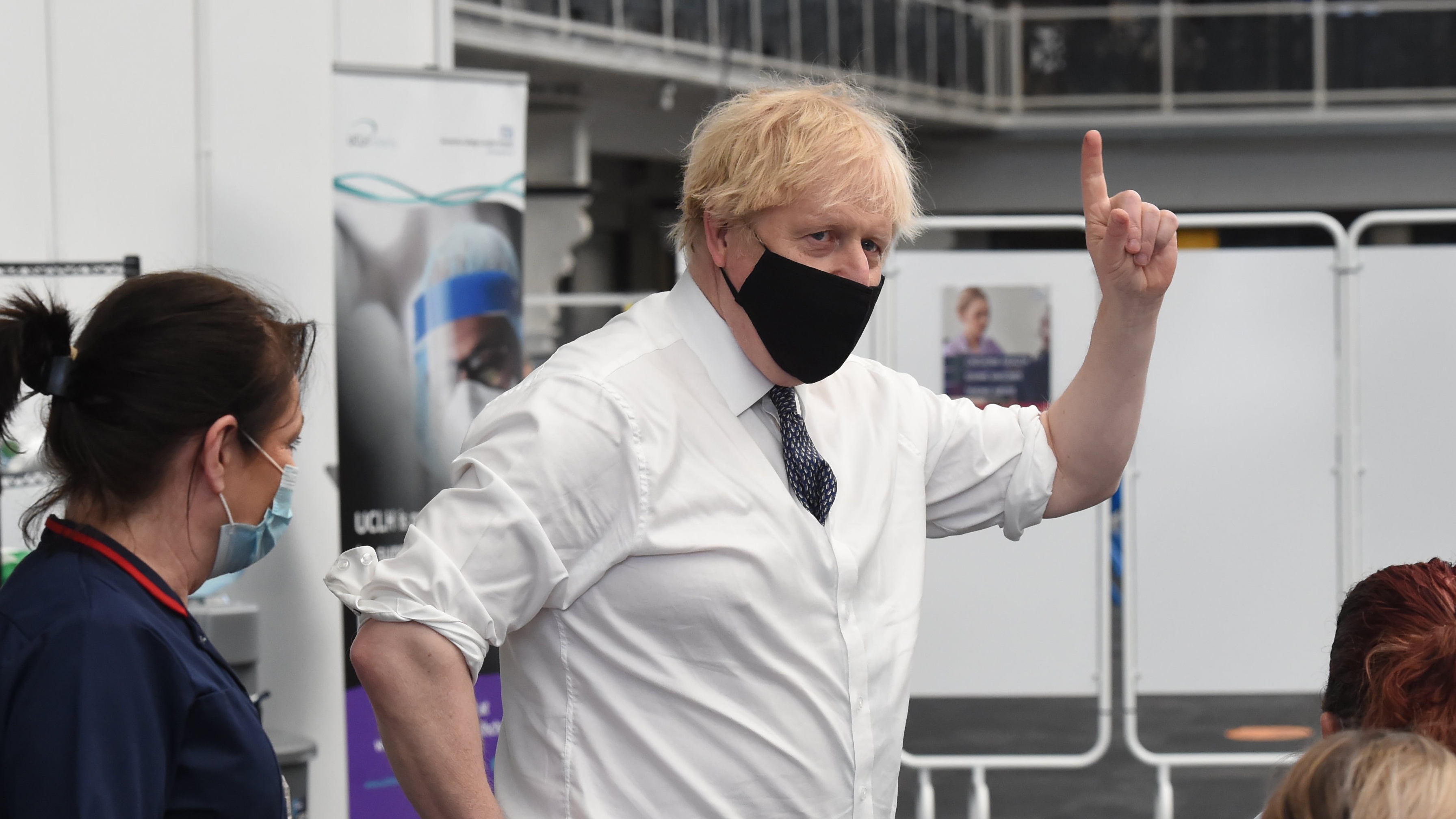Government ‘lacked playbook’ for Covid response
Watchdog says Downing Street failed to plan for key challenges such as identifying clinically vulnerable people

A free daily email with the biggest news stories of the day – and the best features from TheWeek.com
You are now subscribed
Your newsletter sign-up was successful
The UK’s response to the Covid-19 pandemic has “laid bare existing fault lines within society” and “within public service delivery and government itself”, according to the National Audit Office (NAO).
A newly published report by the government’s spending watchdog says that a lack of planning left ministers without a “playbook” on how to tackle key challenges triggered by the health crisis.
Coronavirus has “stress-tested the government’s ability to deal with unforeseen events and potential shocks”, says the NAO, which points to gaps in planning for key challenges such as managing disruptions to schooling.
The Week
Escape your echo chamber. Get the facts behind the news, plus analysis from multiple perspectives.

Sign up for The Week's Free Newsletters
From our morning news briefing to a weekly Good News Newsletter, get the best of The Week delivered directly to your inbox.
From our morning news briefing to a weekly Good News Newsletter, get the best of The Week delivered directly to your inbox.
Exercise Cygnus, a 2016 modelling of a flu-based outbreak, also failed to include “the testing of plans and policies for the identification and shielding of clinically extremely vulnerable (CEV) people”, continues the report, which summarises 17 sector-specific NAO reviews. After shielding measures were announced in March last year, four weeks passed before around 400,000 CEV people were identified after having previously passed under the radar owing to the “challenge of extracting usable data from different NHS and GP IT systems”.
The report also raises concerns about how Covid has exacerbated existing inequalities, with the watchdog pointing to “decades-long weaknesses in government and divisions in wider society”, says The Guardian.
Under-funded local governments have been “scarred” by the pandemic and “will not bounce quickly”, says the NAO, with “94% of chief finance officers from single tier and county councils we surveyed expected to make cuts in service budgets in 2021-22”.
In order to build a more robust response to “high-impact low-likelihood events” such as a global pandemic, long-term solutions are also needed to tackle other problems including inadequate adult social care and workforce shortages, the report adds.
A free daily email with the biggest news stories of the day – and the best features from TheWeek.com
Summarising the findings, NAO chief Gareth Davies said that “there is much to learn from the successes and failures in government’s response” to the Covid pandemic.
“Applying these lessons is not only important for the remaining phases of the current pandemic but should also help better prepare the UK for future emergencies,” he added.
That message was echoed by shadow health secretary Jonathan Ashworth, who said the pandemic had “exposed the NHS and social care to extreme pressure like never before”.
“We need both an NHS rescue plan to bring waiting lists down and a plan for social care reform. Our NHS and care system cannot be left exposed in the same way again,“ he told The Guardian.
Green MP Caroline Lucas has described the NAO report as “damning”, tweeting that there was “no sign that this Govt has any clear plan to repair the damage” wrought by the coronavirus.
Responding to the NAO findings, a government spokesperson said that “throughout the pandemic, our approach has been guided by data and the advice of scientific and medical experts” and that “we acted quickly and decisively to protect lives and livelihoods”.
The spokesperson added: “We have committed to a full public independent inquiry to look at what lessons we can learn from our response to this unprecedented global challenge.”
Sorcha Bradley is a writer at The Week and a regular on “The Week Unwrapped” podcast. She worked at The Week magazine for a year and a half before taking up her current role with the digital team, where she mostly covers UK current affairs and politics. Before joining The Week, Sorcha worked at slow-news start-up Tortoise Media. She has also written for Sky News, The Sunday Times, the London Evening Standard and Grazia magazine, among other publications. She has a master’s in newspaper journalism from City, University of London, where she specialised in political journalism.